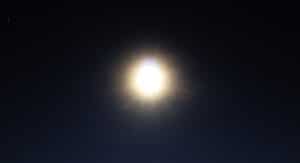
Like many, I’ve been deeply grieved by the policy of family separation at the border. For weeks I’ve cast about looking for a handhold, for an idea of what to do, for who I am to be during a desperate time like this. Like many, I’ve come up short. Somehow the drumbeat of “Keep calling, keep writing, hold steady” has weakened under the constant stream of heartbreak being perpetrated at my border—in my name, no less. In the name of “protecting” me and my own child.
I know the mothers at the border.
I know them because they could be me in an instant, should my home turn violent, should my home be bombed, should my country fall to despotism.
I know them, too, because they are in my Christian Scriptures. They are Mary and Jocheved—mother of Jesus, mother of Moses. Mary, whose family fled to the desert to escape the command of Herod, who demanded that the children of Israel be slaughtered to maintain his power. Jocheved, who knew that her child was no longer safe in her arms due to the command of Pharaoh, who demanded that the children of Israel be slaughtered to maintain his power.
Pharaoh loved his life, his wealth, his power, his privilege so much that he would do anything to preserve it.
Perhaps you, too, see a theme here. Men in power, leading nations whose grasp on wealth was predicated on the oppression and terrorization of the marginalized in their midst, were afraid of children. And they mobilized their forces against those children.
Children, deemed a threat.
Children, kept in cages.
Children, forcibly removed from their parents.
Children.
Some of us have forgotten the story, or perhaps we never heard it. In Exodus 1:15-2:10, Pharaoh ordered that Hebrew boy-children should be slaughtered by the midwives at their birth.
Before we go any further, let us get one thing crystal clear: Pharaoh didn’t give this decree because he categorically hated baby boys. He gave this decree because he loved his life, his wealth, his power, his privilege so much that he would do anything to preserve it—and extend it. Pharaoh’s family and colleagues loved their lifestyle, wealth, power, and privilege so much that they were willing to ignore what was being done in their name in order to maintain it.
The Egyptians in Exodus didn’t hate babies—they just loved their lives. And Pharaoh wanted his legacy and his children to be secure. He regarded the Hebrew slaves’ lives as worth less than those he loved. So, in this equation, genocide isn’t a deterrent. It’s an investment in the future prosperity of a nation.
So children are called dangerous. Children are looked at as “animals,” pests to be exterminated. And midwives are turned into exterminators, killing male children as they exit the womb. Presumably, the midwives were to tell the Hebrew mothers that their children had died in childbirth.
Our Scriptures tell us that this is not the prevailing story. The women say, “No.”
Except our Scriptures tell us that this is not the prevailing story. The women say, “No.” Shiphrah and Puah are named here as “the Hebrew midwives,” and we don’t know whether that means they are midwives who are Hebrew slaves, or whether they were Egyptian women who served as midwives to the Hebrew women. Either way, they refused Pharaoh’s orders and were shrewd while they did it. Shiphrah and Puah used Pharaoh’s own racism against him—they turned his weapon around and shielded the Hebrew infants. If the Hebrew women were “animals,” well, they birthed so vigorously that the midwives just couldn’t get there in time.
And with this shrewd play, the children’s lives were purchased.
Because Shiphrah and Puah would not buy the fear that Pharaoh was selling.
Shiphrah and Puah understood something that Pharaoh didn’t.
Children are not dangerous. These women shook off any fear or power that would make them think otherwise. And in doing so, they purchased the life of Moses, our dangerous child.
But the shield erected by Shiphrah and Puah can only hold so long.
His original orders thwarted, Pharaoh ordered every Egyptian to cast Hebrew boy-children into the Nile. (And here I will note: Do we believe that Pharaoh or those following his orders cared to do a diaper or under-tunic check? We must not deceive ourselves into thinking this was anything other than unbridled terror and genocide on all families.)
After three months, Scripture tells us, Moses’ mother could no longer hide him from every Egyptian she encountered. Pharaoh had turned the very land she lived in into a weapon against her and her children. So, we read, Jocheved placed Moses in a basket of reeds and sent him floating down the river while his sister watched him, hoping to learn his fate.
Poet-refugee Warsan Shire captures Jocheved’s choices in her poem titled, “Home.” In it, she writes:
No one leaves home unless home is the mouth of a shark…you have to understand that no one puts their child in a boat unless the water is safer than the land.
Because of Pharaoh’s actions, the crocodile-infested waters of the Nile were safer than Jocheved’s arms.
When we see Moses in the reed basket, we are seeing the children at the border. When we read of mothers whose nursing children were ripped away from their breast, we must hear the cries of Jocheved. They are one and the same. And we are cannot separate ourselves from them.
For all God’s children on the US side of the border, we must name ourselves among Moses’ deliverers. We must take our cues from Shiphrah, Puah, and Pharaoh’s daughter. The story of Moses and Pharaoh is unfolding before us. Before Moses was the Deliverer, he was Moses the Delivered—before he faced Pharaoh, he was rescued from him.
Pharaoh, whose power was tenuous, convinced his people through fear and dehumanization that, somehow, children were dangerous. Shiphrah and Puah refused this premise. The children lived, and stayed with their mothers.
Pharaoh, whose power was tenuous, convinced his people through fear and dehumanization that, somehow, children were dangerous.
Pharaoh doubled down, deputizing every Egyptian citizen to cast Hebrew boy-children into the Nile or call a guard to do so. But Moses’ basket floated straight to Pharaoh’s own daughter. And she, too, said “No.” She reunited Jocheved with her son, Moses, by hiring her as a wet nurse.
These women, the heroes of the story, were cunning, wise, and resistant. They risked everything because they knew the truth: children are not dangerous.
The Christian call is, as always, to deliver. To answer God’s call, whether from a burning bush or from a heart on fire from a deep-seated sense of injustice and righteous anger—the desire to correct a wrong.
My fellow mothers, parents, caregivers, women, Christians, citizens of the United States:
The women at the border are named Jocheved. We must rise up and name ourselves Shiphrah, Puah, Pharaoh’s daughter.
We must steady ourselves in their legacy and in the truth: Children are not dangerous. Children are not to be kept in cages. Children must not suffer abuse at the hands of the state that would be prosecuted if committed by custodial parents.
Children must not suffer abuse at the hands of the state that would be prosecuted if committed by custodial parents.
We must work tirelessly to keep these families together. We must work tirelessly to reunite them if separated. The children at our border have floated straight to us. Pharaoh has drawn his line in the sand—his power over their lives.
For all of us here in Egypt, we’d do well to remember: the women were right. Pharaoh delivers on zero wins. Pharaoh does nothing, in the end, to protect the people he sought to keep in power by trampling on children and families. Power preserved on a base of condemning children is not long kept, nor is it worth keeping.
The mothers at the border are named Jocheved.
Pharaoh has issued his decree.
We know the outcome of this story, dear ones.
We know who we are called to be.
Repeat after Shiphrah, Puah, Pharaoh’s daughter: Children are not dangerous. People are not animals. God the Deliverer is with and waiting among those praying for deliverance. And we are called to the work of delivering, protecting, and reuniting these families, even if it means defying Pharaoh—be he our nation’s leader or the leader of our own house. We have our blueprint for action—our handhold, a light in the dark, an example of how we can make this work.
We know who we are called to be.
Hannah Shanks is a writer, speaker, professor, and social worker from St. Louis, Missouri. She writes about the intersections of faith, church history, social justice, and personal experience. If you want to find her, just listen for the person laughing too loud in the back of the room and head in that direction. Her book, This is My Body: Embracing the Messiness of Faith and Motherhood, is available through your favorite book retailer; you can also find her on Twitter or on Instagram.


